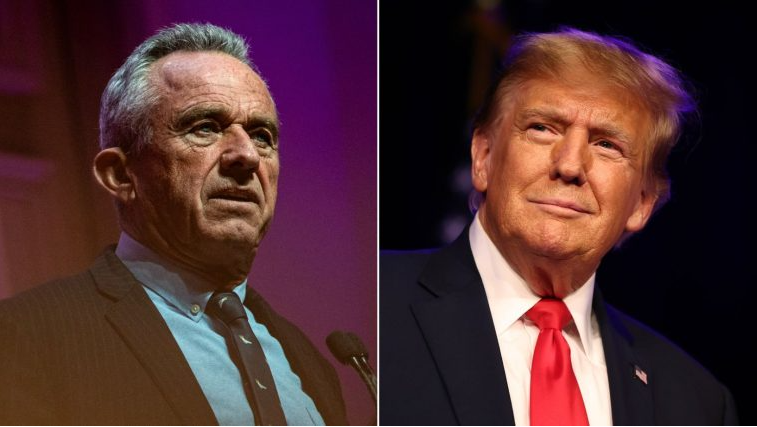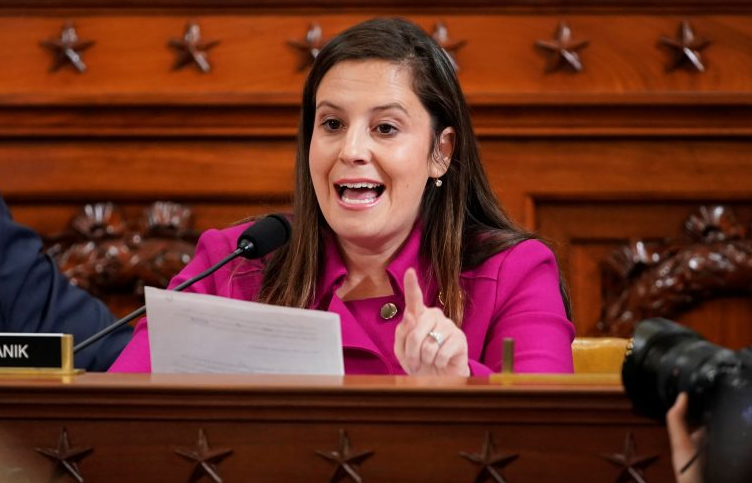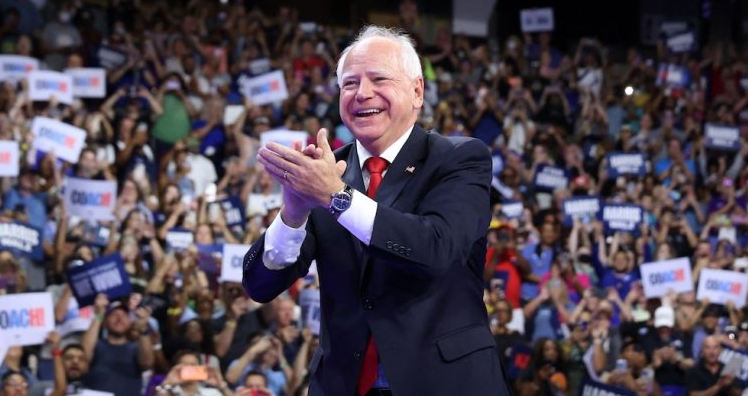In a move that has sent shockwaves through the political landscape, Robert F. Kennedy Jr., who initially ran as an independent candidate for the 2024 presidential election, has announced his endorsement of Donald Trump. This endorsement, coupled with the suspension of his own campaign, marks a significant pivot in the race, potentially altering the dynamics of voter support and strategic political alliances.
RFK Jr.’s decision to back Trump was revealed in a series of actions and statements that unfolded over a critical 24-hour period. Initially, a court filing in Pennsylvania hinted at his intentions, where Kennedy withdrew his ballot access challenge, citing his endorsement of Trump. This was followed by a public speech in Phoenix, where Kennedy not only confirmed his endorsement but also suspended his campaign, albeit with the caveat that he was not ending it entirely. This nuanced approach suggests a strategic retreat rather than a complete withdrawal, keeping open the possibility of future political maneuvers.
RFK Jr.: “I throw my support behind Donald Trump.”
— Real News Now (@RealNewsApp) August 23, 2024
The reasons behind Kennedy’s endorsement are multifaceted, rooted in shared policy concerns and a mutual disdain for what he perceives as the establishment’s overreach. Kennedy highlighted three primary issues: censorship, the war in Ukraine, and what he describes as a war on America’s children through policies affecting health and education. These themes resonate with Trump’s campaign rhetoric, particularly around free speech and America First policies, which focus on reducing foreign entanglements.
This endorsement comes at a time when Trump’s campaign was already gaining momentum, but Kennedy’s support adds a layer of complexity. Traditionally, the Kennedy name has been synonymous with Democratic politics, making this endorsement a significant coup for Trump. It not only broadens Trump’s appeal but also potentially sways voters who might have been considering Kennedy due to his outsider status and his critique of both major parties.
The political implications of this move are profound. For Trump, gaining Kennedy’s endorsement might help in peeling away voters disillusioned with the Democratic Party but hesitant about Trump’s more controversial policies or personality. Kennedy’s critique of the Democratic Party’s direction, especially under Vice President Kamala Harris, could serve as a bridge for these voters.
However, this endorsement isn’t without its controversies. Kennedy’s past association with anti-vaccine movements and his controversial statements have been points of contention. His endorsement might alienate some voters who view these stances as detrimental or misguided. Yet, for others, particularly those within the MAGA base, this move could solidify Trump’s image as a unifier against what they perceive as a corrupt political establishment.
From a strategic viewpoint, Kennedy’s decision to remove his name from ballots in swing states where he could act as a spoiler is pragmatic. It aims to consolidate votes against the Democratic candidate, potentially increasing Trump’s chances in these critical battlegrounds. This strategic withdrawal, while keeping his campaign technically alive, suggests Kennedy might be positioning himself for future political or advocacy roles, perhaps even within a Trump administration if Trump were to win.
The reaction across social media platforms, particularly X, has been mixed but predominantly enthusiastic among Trump supporters. Posts celebrating the endorsement highlight themes of free speech, anti-war sentiments, and a shared vision for America’s future, indicating a narrative of unity against common enemies like censorship and foreign policy misadventures.
In conclusion, RFK Jr.’s endorsement of Trump represents more than just a political alignment; it’s a symbolic gesture of crossing party lines in search of common ground on critical issues. This move could either be seen as a masterstroke in political strategy or a risky gamble, depending on how the remaining months of the campaign unfold. What’s clear is that the 2024 election landscape has been irrevocably altered, with Kennedy’s endorsement potentially setting the stage for a dramatic conclusion to one of the most unpredictable election cycles in recent history.






